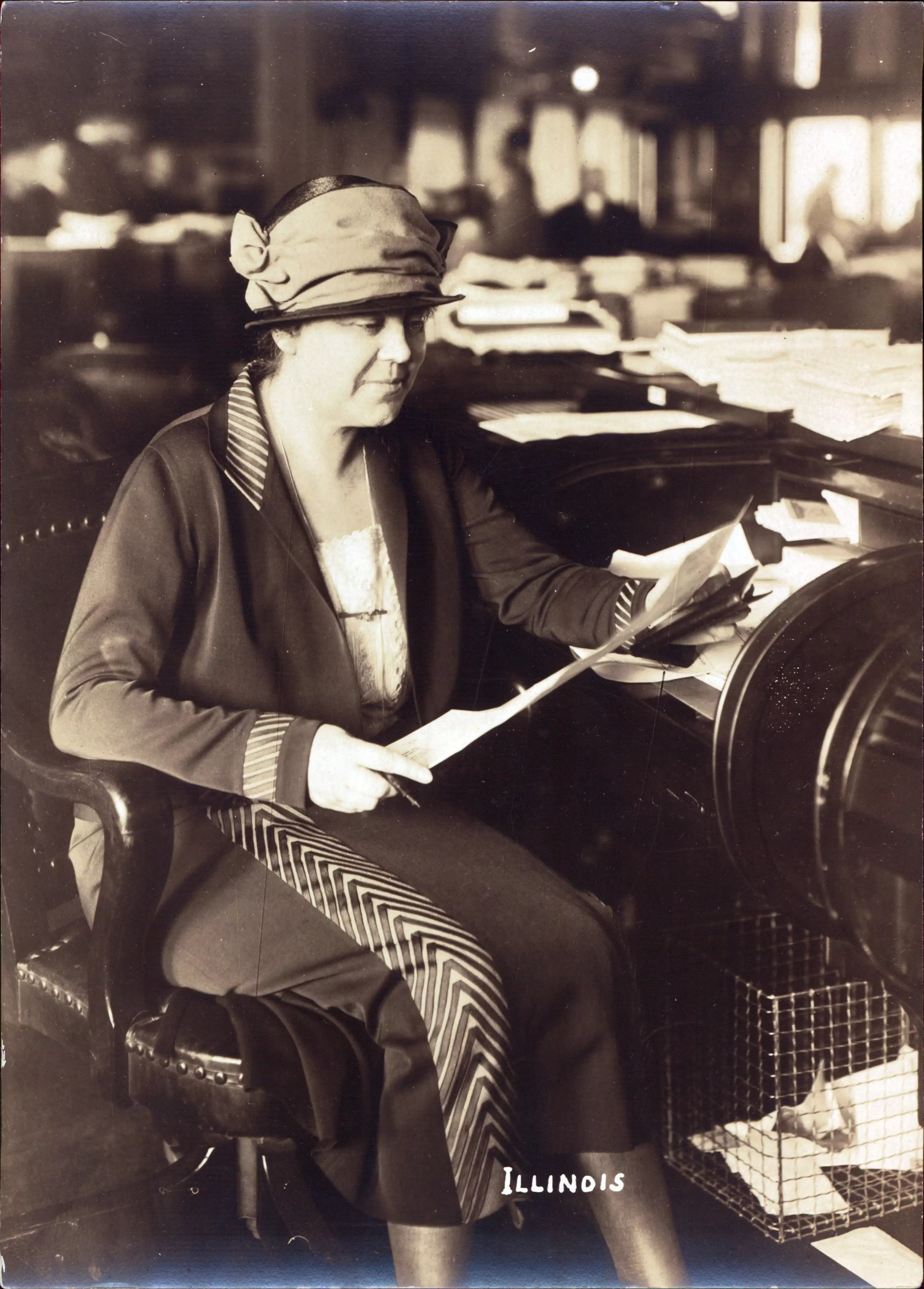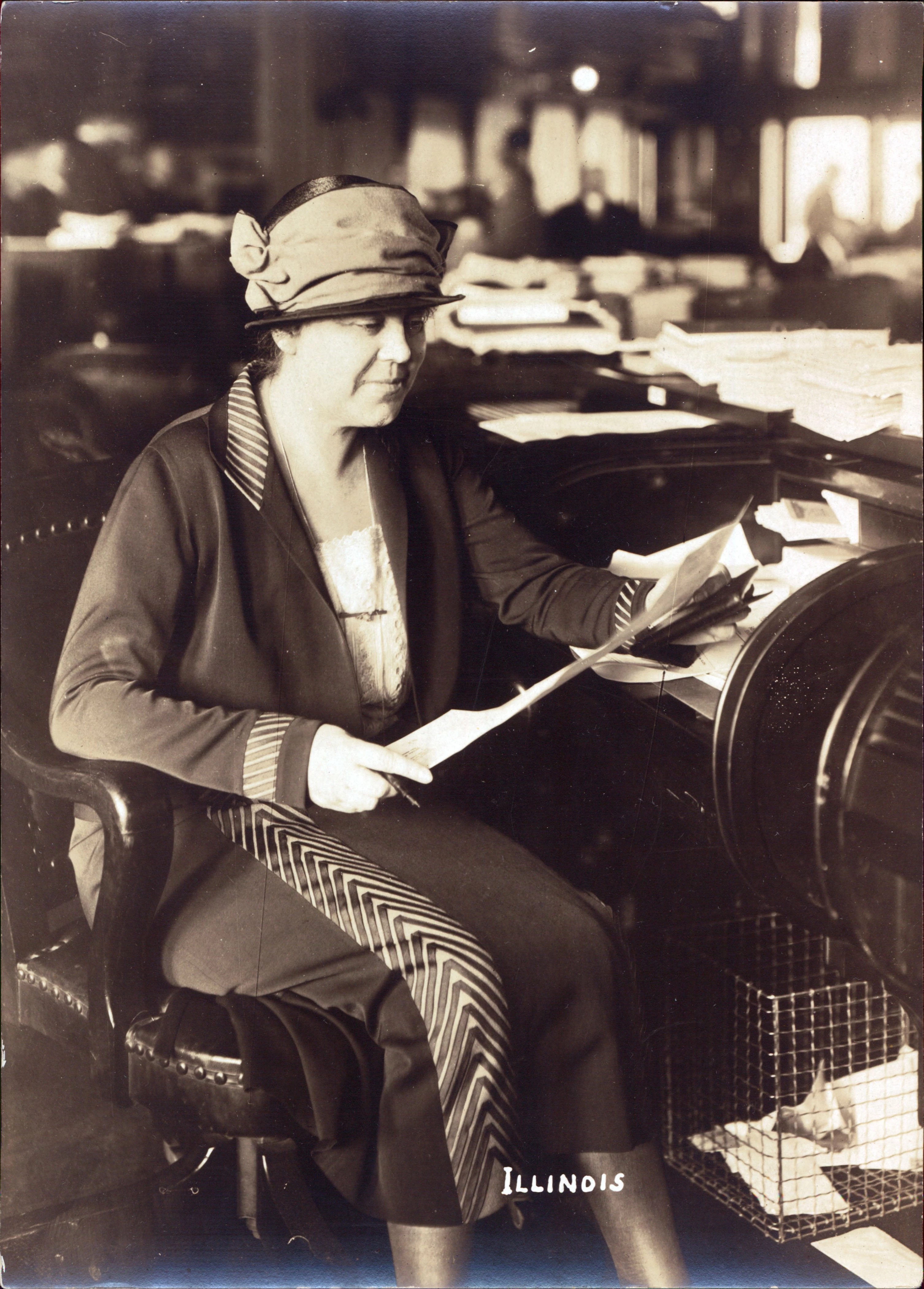Bohrer, Florence Fifer
Florence Fifer Bohrer was no stranger to politics. She was born in 1877 into a political family in Bloomington, Illinois. She was the youngest child of Joseph W. “Private Joe” and Gertrude Fifer. While her father served as governor of Illinois from 1888-1892, Florence spent time in her father’s office, curled up in a large chair listening to her father and his personal friends and advisors discuss political issues with running a state. Florence was fond their arguments regarding policy. Perhaps it was in this setting that her interest in politics was born.
After completing her education, she married Jacob Bohrer in 1898 and the couple had two children, Joseph and Gertrude. Florence felt it was her duty as a good mother to “push out the walls of her home into the community. The wise mother would do whatever necessary to see that good ordinances and laws were adopted to provide a safe environment in which her children may live.”
She first directed her energies toward local issues involving education, public health and welfare, in particular for women and children. She played an instrumental role in the success of the McLean County Anti-Tuberculosis Society and the opening of Fairview Sanitarium in 1919. She also helped form the first Mother’s Club, served on the board of the Girls’ Industrial Home, and played an active role on the board of the Amateur Musical Club among other philanthropic activities. She was also a major figure in the national fight for women’s right to vote.
On Jan. 24, 1924, her 47th birthday, a group of local women surprised Florence with the proposition that she run for public office. Although “the whole idea seemed preposterous’ to her, she eventually came around and began her campaign for the Illinois state senate.
After winning the general election in 1924 (thanks to support from Republican and Democratic women) Florence declared “Women have not come into politics to represent a new interest in the political field, but rather to add their voices to the groups which already exist in our social and economic life.”
She did not take her new responsibilities lightly. One of the first bills introduced by Florence was the “Dance Hall Bill,” which provided for counties to restrict the operation of dance halls and required children under the age of 16 to be escorted by parents or guardians. Florence is also responsible for the bill that created the state park system in Illinois, for introducing the law that provides for payment of all property taxes in two installments, and for the act providing for permanent care for all children of Illinois that were disabled. Reelected in 1928, Bohrer had a productive eight-year tenure in the Senate, earning a reputation as an advocate for state charitable institutions and helping to overhaul child welfare laws.
Unfortunately, she was defeated for a third term by her Democratic opponent in 1932. But that did not stop her from helping the people. When she returned home to McLean County, she took the unpaid chairmanship of the McLean County Emergency Relief Office from 1933-1934. She worked with people who had lost their savings due to the Depression, were jobless, or ill. It was her responsibility to see that some 15,000 in the county were given assistance.
For her work in the Senate and during the employment crisis, she was presented with the Community Service Award in 1934. She was a truly remarkable woman, and because of her service to the citizens of Illinois, she made the state a better place to live. “She stood courageously for whatever she believed to be right, regardless of race or creed.

